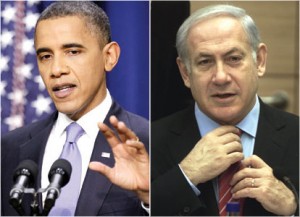 Some 43 percent of Turks perceive the United States as the country’s biggest threat, followed by Israel, according to a broad survey carried out in December.
Some 43 percent of Turks perceive the United States as the country’s biggest threat, followed by Israel, according to a broad survey carried out in December.
“This the highest ratio ever on the external threat question among our surveys,” Professor Özer Sencar, chairman of Ankara-based MetroPOLL Strategic and Social Research Center, told the Hürriyet Daily News & Economic Review on Wednesday,
“The U.S. foreign politics since the Iraqi invasion, the hood incident [the U.S. detention of Turkish soldiers during the Iraq war], the war in Afghanistan, repeated Armenian bills in the U.S. Congress and the negative statements that Turkish leaders make about the U.S. and Israel play a major role in this perception,” Sencar said.
The Ankara-based MetroPOLL survey company, which is affiliated with the ruling Justice and Development Party, or AKP, surveyed 1,504 people in 31 provinces in December.
The survey asked “From which country does the biggest threat come?” with 43 percent of Turks saying the U.S., followed by 24 percent who indicated Israel, 3 percent for Iran, 2.3 percent for Greece, 2.1 for Iraq, 1.7 for Russia and 1 percent for Armenia. Some 1.3 of participants said no country posed a threat to Turkey, while 18.9 said they had no idea.
“It is interesting that Turkish people perceive an ally, the U.S., a country with whom Turkey has high-level, bilateral relations and is in NATO, as a threat,” Sencar said, adding that Turkish people had not perceived the U.S as a threat in their previous surveys until the invasion of Iraq.
“However, following the invasion, especially after the ‘hood incident’ incident in which American soldiers detained Turkish soldiers in northern Iraq and covered their heads with a sack during the arrest, a strong reaction has emerged against the U.S.,” Sencar said. “The war in Afghanistan followed this while Armenian bills coming to Congress every year raises tension.”
He also said the U.S.’ support for Israel was another source of the negative reactions. “Israeli politics in the region and the suffering of Palestinians are not opposed – let alone reacted to – by the U.S. administration,” he said, noting that Turkish hostility toward Israel was rising.
“Those are all cumulative reasons for Turks to have a negative perception of the U.S. Even the politics of the [Barack] Obama administration could not change this trend and the reaction has come to the worst scenario,” he said.
Turks worried but not threatened by Iran
Sencar also said aggression toward Iran was another cause of the negative view. “This is not because Turks have friendly feelings toward Iranians. We asked participants if they were worried about Iran’s nuclear threat. Some 70 percent said they were worried about it.”
Despite this trepidation at Iran’s nuclear capability, the 3 percent of Turks who view the Islamic republic as a threat was dwarfed by the combined 67 percent who see the U.S. and Israel as a threat, Sencar said, adding that Iran’s ratio had fallen over previous years.
In previous years, Armenia, Russia and Greece were perceived as the main external threats for Turks, Sencar said.
“But their ratios have fallen to around 1 or 2 percent. Turks do not see them as enemies anymore,” he said, adding that the “zero problems with neighbors” foreign policy strategy of Foreign Minister Ahmet Davutoğlu was working.
Sencar also said statements from Turkish leaders like Prime Minister Recep Tayyip Erdoğan had a major impact on the “threat” perceptions of Turkish people.
“The biggest support for the European Union is from the ruling party’s voters. But 10 years ago, the EU was the biggest external threat for Islamist conservatives. It’s because the ruling party supported the EU process” that people have been influenced to no longer view the bloc as a threat, he said.
Results suggest CHP increases votes
A separate part of the MetroPOLL survey on domestic politics indicated that while main opposition Republican People’s Party, or CHP, leader Kemal Kılıçdaroğlu had won over many people, the AKP still appeared on course for a majority victory in June elections.
According to the results, if elections were to take place today, the AKP would win 45.3 percent of the votes, while the CHP would take second with 30.7 percent.
The Nationalist Movement Party, or MHP, would come third with 14 percent of the votes, the survey said.
Some 17 percent of those polled were undecided, or said they would refuse to vote out of protest. The pro-Kurdish Peace and Democracy Party, or BDP, would receive 6.5 percent of national votes, the survey said.
Fifty percent of those surveyed think the country is headed in the right direction, while 44 percent disagree, the poll said.
On Kılıçdaroğlu, 68 percent said they found the new CHP more successful than the previous administration. Only 13 percent of voters said former CHP leader Deniz Baykal was more successful.
The deciding factors in which party citizens might vote for are the Kurdish issue and the economy, according to the poll.
Regarding Kurdish demands for mother-tongue education, only 30 percent support the move while 69 percent are opposed.
Asked about recent incidents between student protestors and police, 73 percent said the throwing of eggs by students was undemocratic, while 70 percent said the police’s heavy-handed treatment of was students wrong, the survey said. Hurriyet

Leave a Reply
You must be logged in to post a comment.